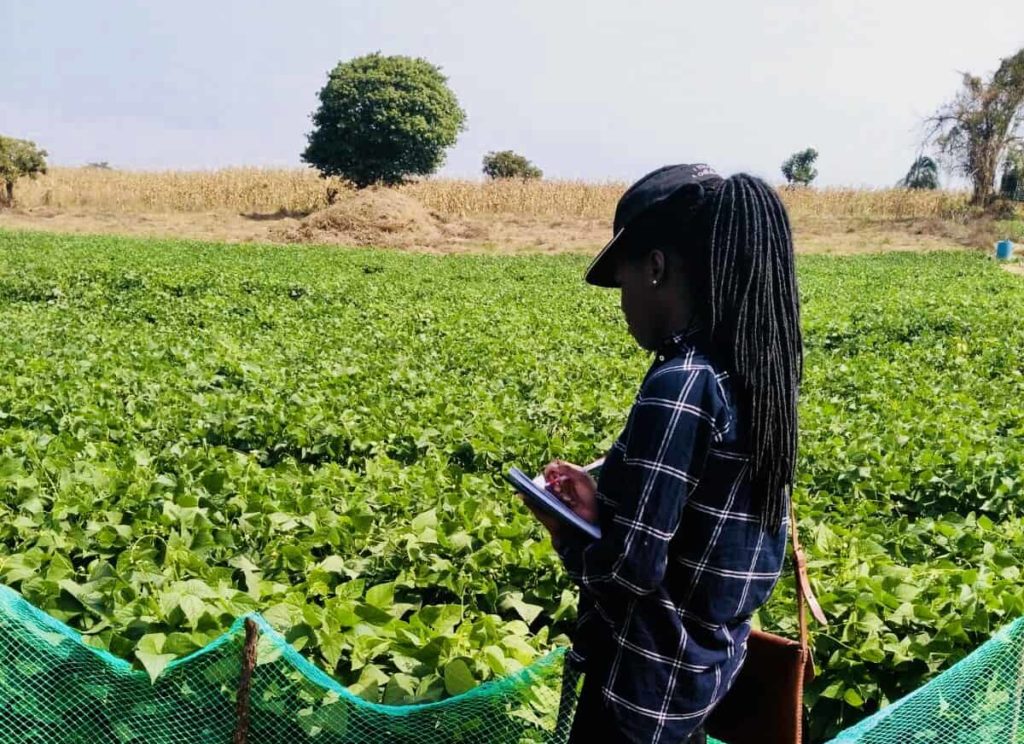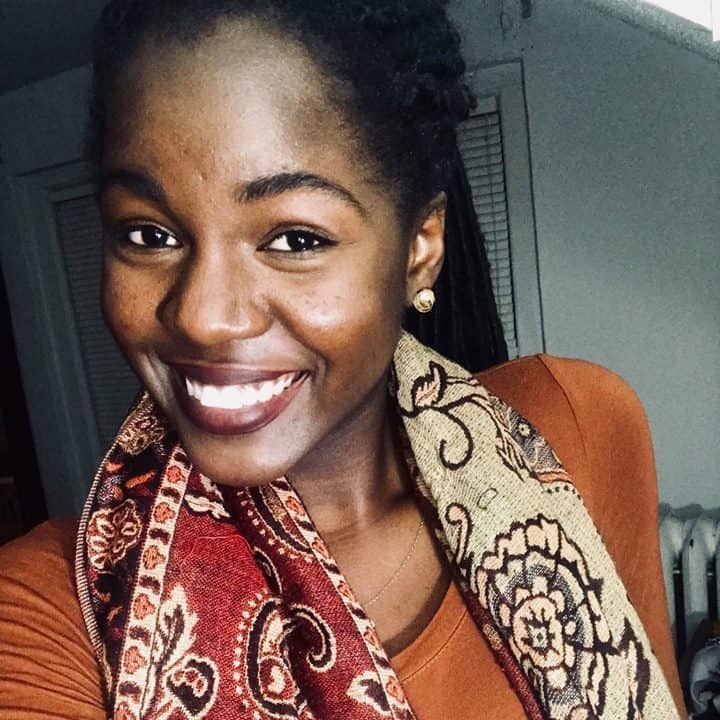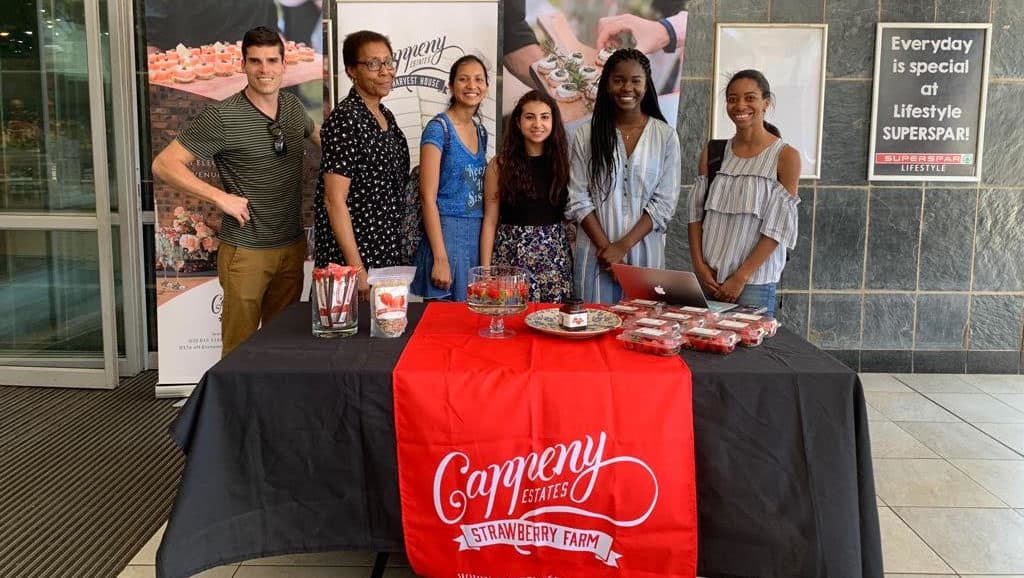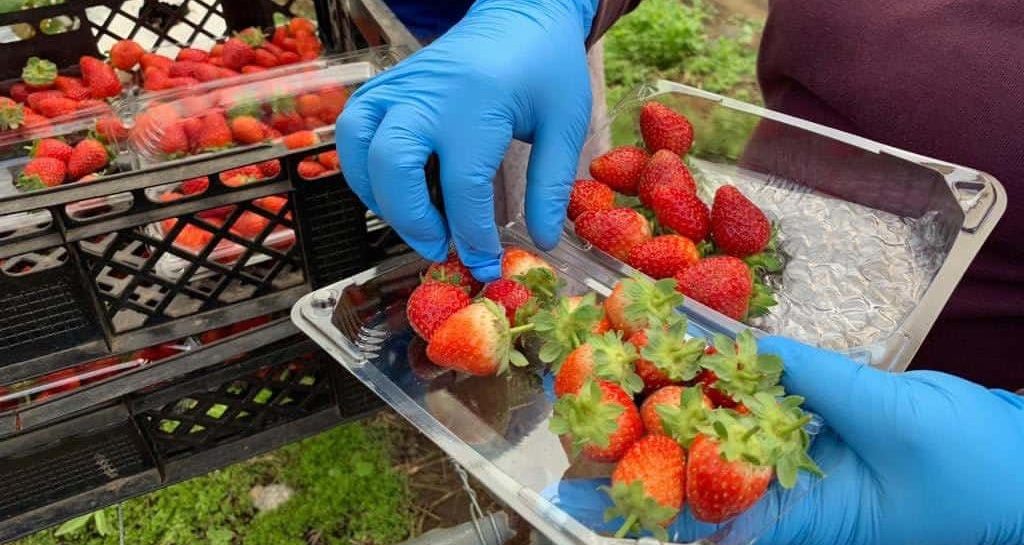
Instant Inspiration: Krystal Z
 Krystal Zwiesineyi Chindori-Chininga is a senior International Agriculture and Rural Development Major at Cornell University. Originally from Zimbabwe, her experience with community agriculture organizing around the world has given her a unique perspective as the youngest member on Groundswell Center’s Equity & Accountability Committee. She also is currently working with our Director to draft new organizational Diversity and Equity Policies. She recently became the newest member on our Board of Directors. She is an inspiring young woman ready to change the world through agribusiness. Check out this special interview I conducted with Krystal this fall!
Krystal Zwiesineyi Chindori-Chininga is a senior International Agriculture and Rural Development Major at Cornell University. Originally from Zimbabwe, her experience with community agriculture organizing around the world has given her a unique perspective as the youngest member on Groundswell Center’s Equity & Accountability Committee. She also is currently working with our Director to draft new organizational Diversity and Equity Policies. She recently became the newest member on our Board of Directors. She is an inspiring young woman ready to change the world through agribusiness. Check out this special interview I conducted with Krystal this fall!
1. Can you talk about your background and what led you to work with Groundswell Center?
Agriculture is a big part of the Zimbabwean economy and how livelihoods function. As a young child I knew I wanted to work in developing the Zimbabwe economy and contribute something meaningful to our progress as a nation. I have seen times of progress, transition, deep recession and depravity, as well as political issues. I’ve seen how a lot of all those loftier political issues always come back down to really basic necessities like food. All of that comes back down to the industry that 80% of Zimbabweans are apart of. When I moved to the US, I started to see agriculture in many different frameworks. I’ve done a lot of work regarding community agriculture and specifically, how agriculture can really be apart of culture, livelihood, and health in many different contexts. I wanted to be a part of community agriculture here in Ithaca and Groundswell has been a great fit. I believe in their mission and am glad to be a part of it.
2. How do you think your international background has shaped your perspective on the American food system?
The American agriculture system for all of its faults is very sophisticated. There are legitimate mechanisms in place while other areas are not as developed. It is important noting how what happens in the US has a knockdown effect on the rest of the world. For example, organic agriculture has a huge impact on conventional farmers around the world who were trained to farm that way or choosing to localize food impacts farmers who are interested in exporting their products. Trying to see American agriculture within its own little bubble is not helpful. Every decision we make whether it’s localizing, organic agriculture, industrializing, trade policy, ends up having an impact on an farmer in an emerging market somewhere else.
3. What is your main role on the Equity and Accountability Committee?
I’m the only student and the youngest person on this committee. I’m also the only person that hasn’t lived in Ithaca for many years. I am able to see everything from a birds eye view, just being foreign to it all. The committee is one of Groundwell’s efforts to tackle issues like equity and justice that are key to its mission and put them in an infrastructural setting. Basically with these visions, we are asking ourselves, what are some hard, tangible things that we can do to achieve these goals? The committee is there to operationalize this mission. I am able to contribute information that I gained from a development setting, from my development courses, and from working in agriculture and community organizing. I’ve worked in Uganda, Ghana, Texas, Upstate, NY, Malawi, Redtown, NY, and Zimbabwe. So I’ve been able to be in that position where I’m having to operationalize goals towards agriculture for under-resourced communities.We also look at our mission as, how does this fit into the global network of agriculture? It’s not just Ithaca that were trying to deal with, we’re asking ourselves, how does this fit into the bigger picture of a just food system?
4. How does the Equity Committee benefit you?![]()
Without a doubt, the biggest feature of my experience with Groundswell is how much I’ve learned from them. They’re able to direct me in a certain direction. The biggest part is me gaining information about community organizing and of course being in a non-profit organization in the US which is a whole different experience. I’m learning exactly how you collaborate in a community for a single goal. It is interesting to watch Groundswell bring so many people from different backgrounds together to actually achieve these goals. Coming from a Zimbabwe background, racial and ethnic inequality is not as caustic an issue as it is here. Working with Groundswell I came to learn how racial and ethnic issues are very potent and prevalent issues here. Coming from an ethnic background, I assume there is a lot of understanding about my background that is well known. It is not well known, it needs to be operationalized and explained. I’ve definitely learned some of these nuisances of the agriculture system in the US and how race and ethnicity factors into that.
5. What is the importance of equity and accountability in the Groundswell mission to you?
As far as the accountability aspect goes, there is a lot of talk all across the US about ethnic and racial issues in agriculture and society in general. However, it’s not always operationalized and not always followed through on. Sometimes it’s tokenized and in other cases, it’s just a single event geared towards one specific thing. It’s not necessarily a learning or transformational process. The accountability aspect is beyond just recognizing there is a problem or how that issue works, it’s how we are going to follow up with ourselves and create checks and balances to make sure we’re actually doing a long term sustainable project towards making that kind of change. My thinking revolves around creating systems that are cognizant of those issues in equity and specifically looking at how this factors back into households, neighborhoods and family life. When you talk about agriculture, race and ethnic issues, it always goes back down to a personal level and to an individual level-how people are getting through their lives in terms of finding jobs and being able to eat. My main interest in this equity and accountability aspect is are we giving people in the most remote parts of that spectrum of socioeconomic differences access to these resources? And looking at young black women and previously incarcerated individuals and how access to business, agriculture and entrepreneurship can factor into their lives in general.
Krystal hopes to go to either business or law school after graduating from Cornell this spring. She is looking towards working in agribusiness, risk management, foreign investment in emerging markets particularly in agriculture, and developing the emerging markets business.
– Interview by Eli Serrano, Groundswell Communications Intern


